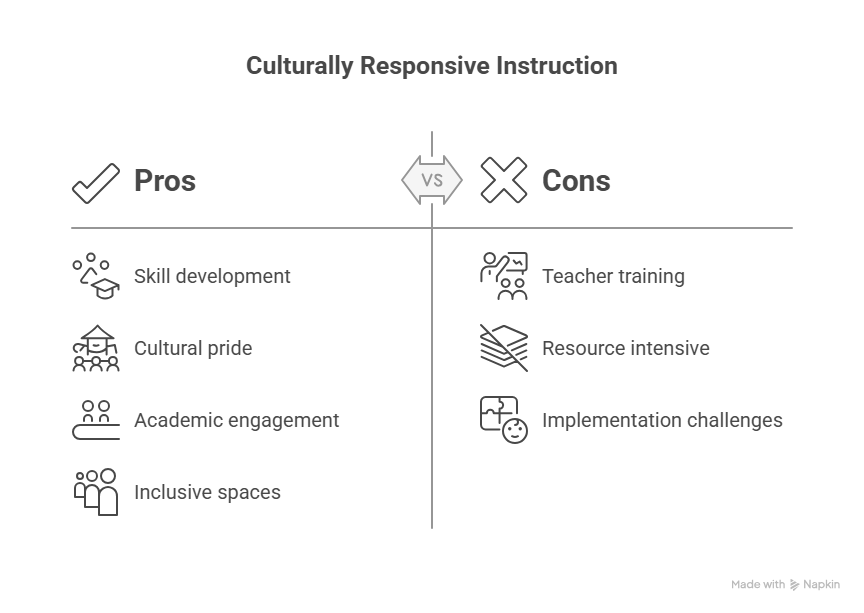Gandhinagar: A recent study in Gaya District, Bihar, shows that students learned important life skills more effectively when their classes included elements from their local culture. Researchers tested a method called Culturally Responsive Instruction (CRI), which produced major improvements—14 to 16 points higher—in social, emotional, and collaborative skills compared to regular classroom teaching.
When placed against conventional teaching practices, the CRI approach showed clear gains across several key areas. Students who learned through the CRI framework recorded an 18.97% increase in interpersonal competence, which boosted communication and made social interactions smoother, ultimately making them more socially adept.
These students also achieved a 19.74% improvement in emotional development, showing that genuine understanding of emotions grows from practical, real-world experiences rather than only from textbooks. The most striking progress appeared in collaborative skills, where students showed a 21.72% improvement.
The study followed 62 Class 8 students in two government schools. Half the group learned through the CRI method, while the other half continued with standard lessons. After 150 hours of instruction across two months, the CRI group displayed stronger gains in interacting with others, managing emotions, and working in teams.
Teachers designed the CRI method to link lessons with the students’ environment and traditions. Activities drew on indigenous games, local crafts, food, plants, farming practices, traditional festivals, physical activities, etiquette, dress, and performing arts.
The research was led by Dr. Ravindra Kumar, Associate Professor at the Central Institute of Educational Technology (CIET), NCERT, New Delhi, and Prof. Ravi Kant, a faculty member in the Department of Teacher Education at the Central University of South Bihar. Prof. Kant was the corresponding author and handled the research methodology, analysis, and drafting. Pather Dabi Educational Trust, West Bengal, published the study in January 2025 with financial support from the Indian Council for Social Science Research (ICSSR), New Delhi.
What the Study Found
To measure CRI’s impact, the researchers used a pre-test and post-test control group design. Both groups of students were assessed through a specially designed Social, Emotional, and Collaborative Skills Scale (SECS). A t-test at a 0.05 level of significance confirmed the results.
1. Social Skills
- Experimental (CRI) group post-test mean: 90.23
- Control group post-test mean: 75.84
- Difference: 14.39 points
- t-value: 10.830 (p < 0.01)
- The CRI group started with a mean of 67.32 and gained 22.91 points, while the control group started at 69.06 and gained only 6.78 points.
2. Emotional Skills
- CRI group post-test mean: 81.81
- Control group post-test mean: 68.32
- Difference: 13.49 points
- t-value: 8.771 (p < 0.01)
- The CRI group’s pre-test mean was 61.65, with a gain of 20.16 points. The control group started at 59.52 and gained 8.80 points.
3. Collaborative Skills
- CRI group post-test mean: 91.52
- Control group post-test mean: 75.19
- Difference: 16.33 points
- t-value: 9.051 (p < 0.01)
- The CRI group’s pre-test mean was 66.10, gaining 25.42 points, while the control group started at 67.71 and gained 7.48 points.

In all three skill areas, the CRI group improved more than the control group. This shows that students learned interpersonal skills more effectively when their education included cultural and community-based content.
Why It Matters
This study suggests that using culture in the classroom can help students grow in areas beyond academics. By including activities that reflect their own lives and traditions, students became better at working with others, handling emotions, and showing social awareness.
These findings also support India’s National Education Policy (NEP) 2020, which encourages schools to include culture, identity, and emotional development in education. While traditional teaching methods did lead to some improvement, CRI showed significantly stronger results across all areas measured.
In a time when schools often focus on tests and grades, this study shows that learning rooted in students’ real-world experiences can help them develop skills that matter for life—not just exams.



